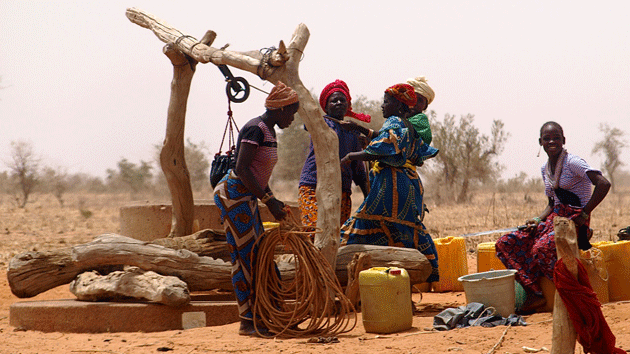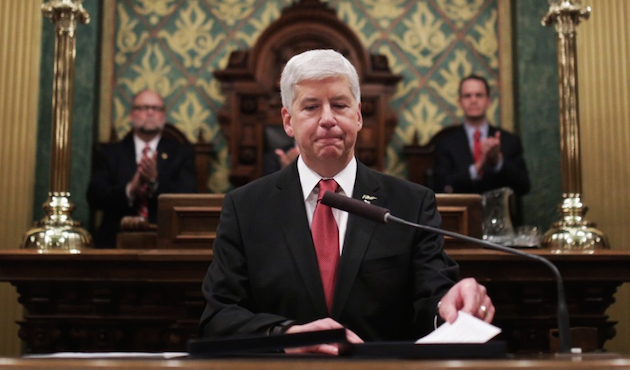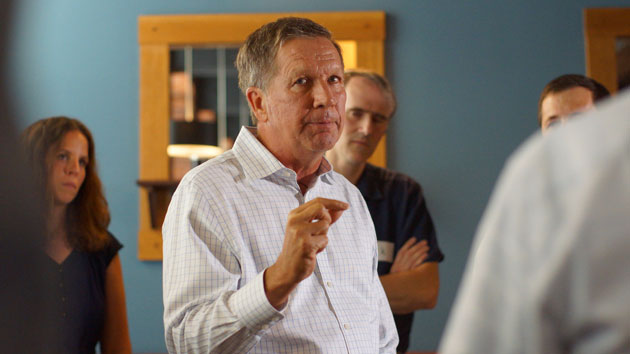
<a href="https://www.flickr.com/photos/focx/4117141154/in/photolist-7gPqCj-hoquQG-btKU5-otYZi3-aJnY9g-5q7Gjp-8fX8hD-8g1pcf-8g1ov5-b9VEBR-8msi7d-7jVrZv-8B1xDi-4NbH6-ndRF-57GiaA-5GDhE4-7jGEbZ-4vpbpt-9zPHvt-gzJ81r-8B4Dxj-2z5EhD-k2pD2-dMLPon-eMFEf-9B28C3-xJThdS-7GeU4V-FqD2k-c9rnfu-eU4jP6-quGu3M-4RNwNF-qq2DZu-hoquD9-gjedXx-4kz47E-wNR2D1-8g1oHU-3fAaug-9kagTo-pmSLg9-qf2NVk-4WyafD-a3unJ4-xHpA9h-9D6REX-4mZxJj-a3uo8e">Christoph Rupprecht</a>/Flickr
The world’s water crisis might be much worse than we thought. Four billion people, or two-thirds of the global population, face severe water shortages for at least one month out the year, according to a study published on Friday in Science Advances.
Arjen Hoekstra, a professor at the University of Twente in the Netherlands and the study’s lead author, says better living standards and the expansion of agriculture are among the factors that have increased demand for water and caused resources to dry up across the globe. And during the hot months of the year when water is already scarce, people draw from rivers and groundwater, further threatening water sources and the people who rely on them.
“Direct victims of the over consumption of water resources are the users themselves, who increasingly suffer from water shortages during droughts,” according to the study’s authors, who add that even one month without reliable access to water affects quality of life.
Of the 4 billion people who face severe water scarcity for at least part of the year, 130 million reside in the United States, mostly in Western and Southern states like California, Texas, and Florida, where drought is already a common aspect of life. But those dry spells are made worse by the rising demand for water. In the West, the vast majority of water flowing from the all-important Colorado River goes to agriculture, and federal subsidies actually encourage farmers to plant the thirstiest crops, like cotton. On top of that, state laws push farmers to flood their fields with as much water as they can.
The remaining 3.8 billion people affected by severe water shortages are outside the United States, in places like Africa and the Middle East, where access to water has long been a source of concern. This January marked the fifth year in a row that the World Economic Forum ranked water crises among the top three risks to the world economic stability, alongside climate change and weapons of mass destruction.
Increased water depletion could also create fodder for increased political tensions. Volatile places like Pakistan, Yemen, Egypt, Libya, and Somalia are among the countries where large portions of the population experience severe water scarcity all year-round. A Yemeni newspaper estimated that 70 to 80 percent of conflicts in rural areas of that country were about water. Yemen’s Al Qaeda branch has even exploited the shortage, winning over support by digging wells and providing villages with water.
Hoekstra’s findings paint a much bleaker picture of the global water crisis than most previous estimates. Both the World Wildlife Fund and the United Nations have said it would take until 2025 for two-thirds of the world population to be without access to water, meaning today’s findings put us a decade ahead of schedule.
“We have generally underestimated the risks associated with water scarcity,” Hoekstra told Mother Jones in an email. But, he adds in a press release, there’s a bright spot: “All over the world, it is clear that the risks associated with high water consumption are being increasingly recognized.”













